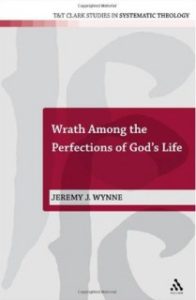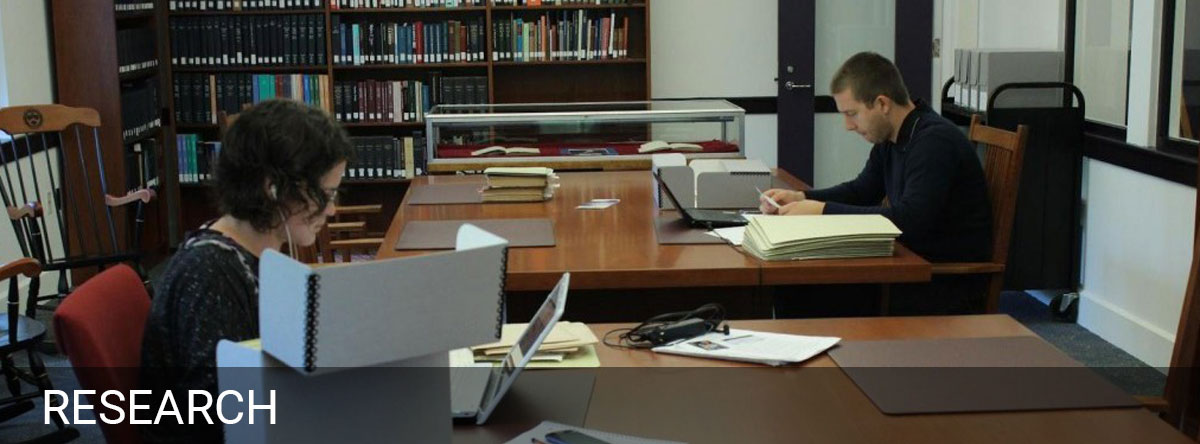 Wynne, Jeremy J. Wrath Among the Perfections of God’s Life (New York: T & T Clark, 2010), 232 pp. $130.00 ($44.95, paperback).
Wynne, Jeremy J. Wrath Among the Perfections of God’s Life (New York: T & T Clark, 2010), 232 pp. $130.00 ($44.95, paperback).
Reviewed by Adam J. Johnson (April 04, 2013)
Did the incarnate Son suffer the wrath of the Father? Are different “natural” catastrophes acts of punishment by an angry God? Will humankind eventually be divided (or has it already been divided?) into those who enjoy God’s gracious blessing in eternity or suffer at the hand of his righteous wrath without end? The doctrine of the wrath of God plays a significant role in a wide range of theological (and cultural) “occasional and thematic” questions. In Wrath Among the Perfections of God’s Life, Jeremy Wynne offers compelling and well-rounded account of this doctrine so as to better equip the church to grapple with these questions by stepping back and “work[ing] out with greater systematic specificity the Christian claim that wrath belongs to God in his perfection” (1). Wynne’s approach is heavily indebted to Barth overall, though he offers a new distinction between providential and redemptive “modes” of God’s perfection (see 63) in order to clarify how, in Barth’s theology “grace and mercy—and by implication God’s wrath—may be ascribed to God without compromising the freedom of the life which God has from himself as Father, Son and Holy Spirit” (110).
The key to Wynne’s thesis is his proposal concerning “modes” of the divine perfections—an argument which has two movements. First, Wynne argues that in the act of God we “have to do rather with the glory of the Lord, God alive in our midst, the One seeking freely and gratuitously to give life to creatures, and so sustain them in their own, particular being as not-God” (23). That is to say, Wynne begins with an immanent-economic distinction (see 24). But he does so in such a way as to account for God’s economic activity with and for us as the God who makes room for his creatures within his own proper glory and life, and thus sustains and blesses the creature. Second, Wynne argues in the key constructive section of the book (see 109–14) that “a systematic account of divine perfection [must think] along two axes. Thinking the divine perfections along the first axis accommodates the fundamental, asymmetrical distinction between Creator and creature, infinite God as he is present to finite creation. . . . This first distinction may be maintained and developed as a providential mode of divine perfection” (111). But because the creature is not only finite but sinful, we must also think along a second axis, a “redemptive mode of divine perfection” which “accommodates the contingency of God’s life as it is lived for and among sinful human beings” (111).
Beginning from an account of God’s livingness (31), Wynne argues that wrath is one of God’s attributes against those who contend for a more immanentistinterpretation—that what we might call “wrath” is merely the natural consequence of sinful behavior. Specifically, it is such as a mode of divine righteousness in its confrontation with sin. That is to say, wrath “as one instance of the variety proper to the life of God, may be efficiently and effectively located among the perfections of God as a redemptive mode of divine perfection and, more specifically, as a redemptive mode of his righteousness” (13). Righteousness is proper both to the divine life in eternity and to its enactment in the triune God’s creation (i.e., a providential mode of activity). Given the reality of sin, however, God acts righteously partly in the mode of wrath: this is “God’s unrelenting opposition to sin” (116). Thus we can affirm both that in knowing God’s wrath we truly know God, and that wrath is not present in God from eternity in the same sense as are God’s love, holiness, and knowledge since conflict with sin is not present in God from eternity.
Wynne’s description of God’s wrath is far from one-sided. He locates it within an animated account of the living God’s perfections, particularly emphasizing wrath’s relationship to righteousness and justice. In a particularly felicitous move, however, Wynne ties God’s wrath to divine patience. He argues that the Bible affirms divine wrath in this context: the “triune God may choose to take up this work [of wrath] in a gracious act of passing over sin for a time, dealing with it not on the basis of historical process or in light of the vicissitudes or perceived necessities of creaturely time, but rather out of the resources of his eternity” (136). God’s work of wrath is one done patiently, and thus in utter generosity—another divine perfection Wynne helpfully binds to God’s righteous wrath.
The engagement with divine patience is motivated in part by Wynne’s study of Romans 3:21–26. This constitutes a significant part of Wynne’s argument, along with several other key biblical passages, as he intentionally seeks “a clear mending together of two activities often thought exclusive, namely systematic theological reflection and a disciplined reading of the texts of Scripture” (12). Complementing his study of such theologians as Turretin, Schleiermacher and Barth in the first part of the book, Wynne delves into choice biblical passages in the second part. The movement between the two parts, however, is delightful, for a strong theological engagement with Scripture is balanced with a nuanced exegetical, inter-textual, and canonical engagement with Scripture.
Wynne argues that wrath is a mode of righteousness, but that righteousness is properly related to generosity. Moving beyond the scope of Wynne’s own argument, we can see that it readily applies to the doctrine of the atonement. Penal substitution does not merely concern appeasing the wrath of God independently and as such, but is—or ought to be!—fundamentally concerned with God’s righteous generosity, which has wrath as a mode of its operation but which also properly includes the generous creation of rightness. In short, we cannot understand the righteous wrath of God in his atoning work apart from the resurrection and the re-creation that it entails.
The argument that the divine perfections have modes of activity (e.g., that when faced with sin God can and does enact his righteousness in the mode of wrath) raises an interesting question. If there are modes of attributes, and we know God only in his reconciling confrontation with sin, then we know God’s attributes primarily (if not exclusively) in the modes they take in the confrontation of sin. But if we only know God’s attributes in this mode of activity, do we actually know the character of God at all? In short, does this view create what we might call “attribute modalism,” in which the true character of God is veiled behind the mode of his activity in its confrontation with sin? Barth himself seems to allude to this concern in CD 23.1 (see 326–27).
The solution is ready at hand in the way Wynne locates wrath within righteousness, being careful to specify that God’s saving work is a matter of bringing his righteousness to bear upon our sin both as wrath and in the creation of “rightness.” To put this in terms of the doctrine of the atonement; if we think only of the death of Jesus Christ, then it is true that we only see the attributes of God in their confrontation of sin. But 1 Corinthians 15 demands that we see the resurrection as the primary aspect of Christ’s atoning work, within which his death has meaning. In the resurrection sin has been overcome, and we see the character of God enacted in Jesus Christ the victor who has done away with sin and therefore done away with any threat of “attribute modalism.” Though there are other avenues for dealing with this question (the prayer life of Jesus, for example, as seen in John 17), this response seems particularly fitting given the interest Wynne shows in the doctrine of the atonement throughout the work. And it opens the door to our primary means of accessing the “providential mode” of God’s activity: the Lordship of the ascended Jesus Christ and his work in the church through the Spirit.
Locating the biblical theme of the wrath of God among the perfections of God’s life is a sufficiently interesting task to merit a substantial readership, even if the book were not so well written. Beyond that area of interest, however, readers will find in Wynne’s work a compelling example of integrative systematic, historical and biblical studies under the umbrella of a constructive contribution to Christian doctrine, and an argument that will bear substantial fruit in a number of areas beyond the doctrine of divine perfections.
The views expressed here are strictly those of the author; they do not necessarily represent the views of the Center for Barth Studies or Princeton Theological Seminary.

